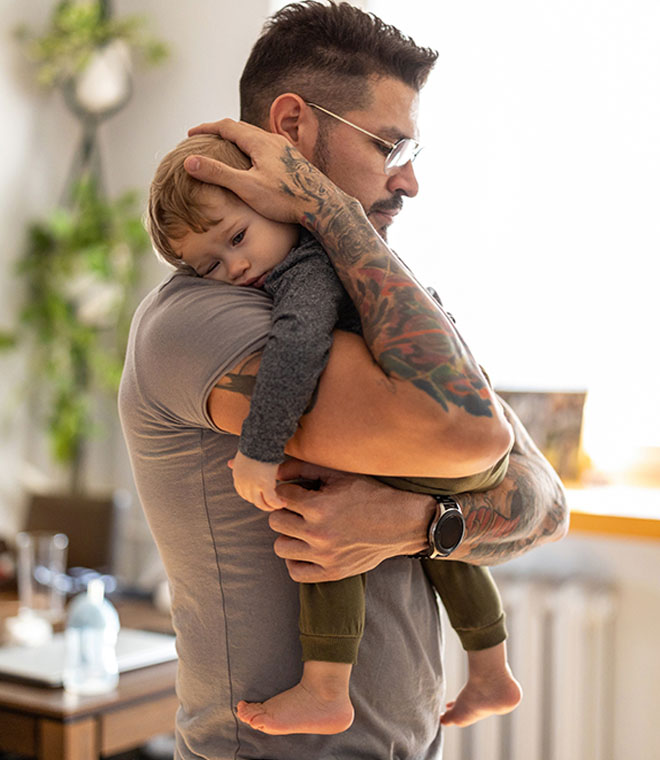Health
Children's aspirin: What you need to know
By Ruben J. Rucoba, MD Jul 25, 2022 • 4 min
If you're old enough, you may remember taking a chewable children's aspirin for fever or pain.
Often flavored like candy, these tiny tablets were once a staple of home remedies for kids. But for some decades now, aspirin has been found to pose risks to children and is no longer recommended for routine use.
When is aspirin harmful for children?
In the early 1980s, medical experts found that aspirin in children and teenagers was associated with Reye's syndrome, a potentially fatal illness. In 1982, the American Academy of Pediatrics (AAP) issued a statement that children with chickenpox or flu should not be given aspirin. This recommendation was later expanded to include any fever-related or viral illness for all children and teens younger than 18.
What is Reye's syndrome?
Reye's syndrome is a rare but serious illness that mostly affects children between the ages of 4 and 12 years. However, people of any age can develop this illness.
Reye's syndrome can cause these symptoms:
- Unusual sleepiness, lethargy or confusion
- Unresponsive when trying to awaken
- Disorientation or hallucinations
- Persistent or severe vomiting and nausea
- Diarrhea and rapid breathing in infants younger than 2
- Increased irritability
- Anger or violent behavior
- Seizures
- Coma
Reye's syndrome can also cause brain swelling, liver failure and, in some cases, death.
Do other medicines contain aspirin or aspirin like-components?
Yes, many other medicines contain aspirin or aspirin-like components. The active ingredient in aspirin is acetylsalicylic acid, and other chemicals that are related to acetylsalicylic acid (known as the salicylates) can also cause Reye's syndrome. Over-the-counter cough and cold medicines may contain aspirin or a related compound. Read the label for active ingredients and avoid giving children any medicine that contains the following:
- Acetylsalicylic acid
- Acetylsalicylate
- Salicylic acid
- Salicylates
- Bismuth subsalicylate
Are there alternatives to using aspirin?
Yes, alternatives to aspirin include acetaminophen (Tylenol) and ibuprofen (Advil, Motrin). It's usually safe to give acetaminophen to infants as young as 3 months and ibuprofen to children 6 months of age and older unless your healthcare provider gives you different instructions. Check with your healthcare provider before giving your child any medication.
Is it ever OK to give aspirin to children?
You should not give aspirin to children under 12 unless you have been advised to do so by a healthcare provider. There are very specific conditions in children that may be treated with aspirin under the care of a healthcare provider. Examples include rheumatic fever, artificial heart valves and Kawasaki disease, an uncommon condition that can lead to aneurysms (ballooning) of the coronary arteries.
If your child or teenager has a fever or viral illness, don't use aspirin. Use a children's pain and fever-reducing medicine containing acetaminophen (Tylenol) or ibuprofen (Advil, Motrin) instead, after consulting your healthcare provider. If you think your child or teen needs aspirin, be sure to consult your healthcare provider before giving them this medication.
Published January 2022.
Sources:
1. https://publications.aap.org/aapnews/article/1/12/17/14850/Reye-Syndrome-chronology
2. https://www.stanfordchildrens.org/en/topic/default?id=reye-syndrome-90-P02620
3. https://www.mayoclinic.org/diseases-conditions/reyes-syndrome/symptoms-causes/syc-20377255
4. https://www.arnoldpalmerhospital.com/content-hub/why-you-shouldnt-give-aspirin-to-your-child
5. https://www.stlouischildrens.org/health-resources/dosage-tables/acetaminophen-tylenol-dosage-table
6. https://www.hss.edu/pediatrics-difference-between-tylenol-advil-aleve.asp
7. https://www.uptodate.com/contents/aspirin-pediatric-drug-information



